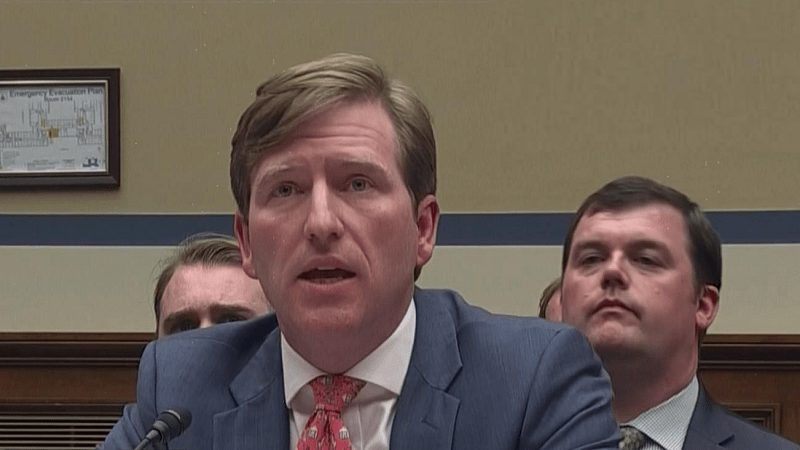
Director of the Cybersecurity and Infrastructure Security Agency (CISA) Christopher Krebs is saying that the 2020 election “will be the most secure election in modern history,” but continued to advocate for backup paper ballots to ensure an accurate count.
The 2016 election acted as a wake-up call to the American people and government as election interference “demonstrated the potentiality to undermine democracy at large,” Krebs asserted at a July 17 Brookings Institution event on election security. Because of the looming threat, CISA and other agencies across the Federal government have worked to up the cybersecurity and resilience posture of election infrastructure.
“Compared to where things were in 2016,” Krebs explained, “we’re not seeing that level of coordinated, determined cyber activity from adversaries.”
CISA has worked to develop a “vibrant election security community of practice” with state and local and private sector partnerships to bring together the pockets of election security expertise, he said. Through these partnerships, the agency has helped create “comprehensive visibility across the election infrastructure sector,” according to Krebs, and placed election intrusion detection sensors in every state.
Despite these wins, the 2020 election faces a surprise shake-up from the COVID-19 pandemic. While CISA has been working on state and local guidance for voting safely during the pandemic, Krebs said that it was critical to the 2020 election that election officials share this information in a way that voters understand.
As officials consider voting alternatives, such as mail-in or drive-thru ballot casting, Krebs cautioned that any form of voting comes with its risks, but “the issue is identifying the appropriate security controls and processes you can put in place to manage that risk.”
To manage that risk, one of the tactics Krebs applauded is backup paper ballots to ensure an accurate count in the face of possible cyber missteps. “To the extent that we can expand rapidly any sort of paper ballot backup,” he said, “that is going to lead to post-election audit success.”
